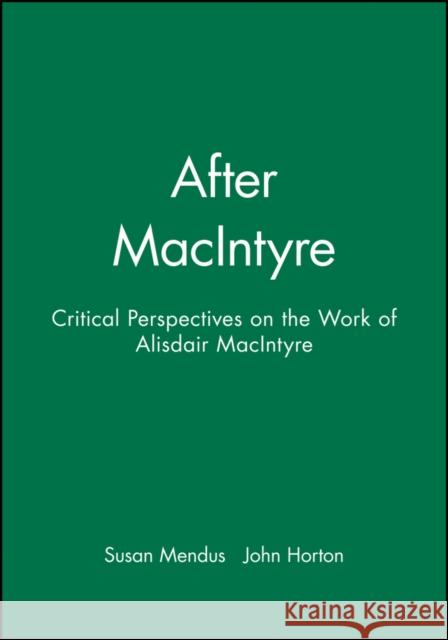After MacIntyre : Critical Perspectives on the Work of Alisdair MacIntyre » książka
topmenu
After MacIntyre : Critical Perspectives on the Work of Alisdair MacIntyre
ISBN-13: 9780745613550 / Angielski / Miękka / 1994 / 336 str.
This is an important full-length study of the work of this controversial thinker by leading political philosophers and social theorists, and includes a reply written by MacIntyre.











